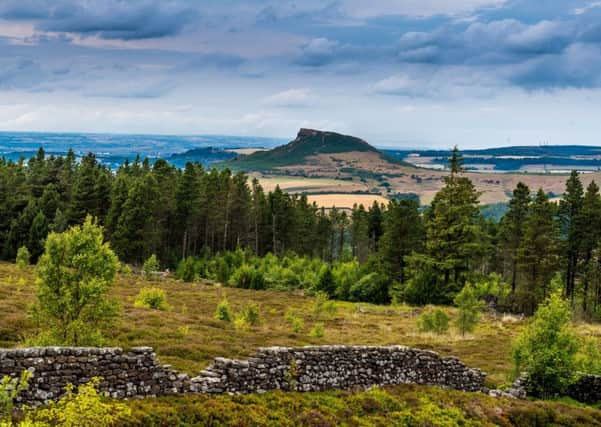Financially stretched North York Moors close to limits of new income possibilities


Previous reductions have left the North York Moors National Park Authority’s annual government grant comparable to the average budget of a secondary school, at around £4.3m.
The park authority has sought new income but this approach is now “stretched”, leaving its immediate future in a “precarious” position, a new report states.
Advertisement
Hide AdAdvertisement
Hide AdThe authority was dealt a 40 per cent cut in real terms funding between 2010 and 2015 and has now warned that this could be compounded if its important source of income from Heritage Lottery Fund grants is affected by falling National Lottery income.
Its report also explains that commercial sponsorship is proving a “very poor” way of generating additional funds.
Some park authority services have been withdrawn as a result of the severe funding pressures, including the Moorsbus service in 2013, although it has since been revived by volunteers.
Recent years have not been without successes. More than 120 apprentices - far more than the national average - have received award-winning training from the authority since 2002 and the quality of the park’s rights of way has been improved by around 20 per cent in a similar period.
Advertisement
Hide AdAdvertisement
Hide AdThe authority can now draw on volunteers to contribute more than 13,000 days a year to help it deliver projects.
However a report by the park authority’s chief executive Andy Wilson and colleagues says “with stronger powers and long-term committed resources we can and should set the bar much higher”.
The report forms a draft response to the Government’s protected landscapes review consultation which ends next Tuesday.
It calls on the Government to underpin the park authority’s capabilities to diversify its income by protecting core grant funding.
Advertisement
Hide AdAdvertisement
Hide Ad“External grants require support from rangers and specialists to implement them,” the report states. “Volunteers need organisation and Health and Safety cover even if they lead their own tasks. Very few if any services generate a surplus, so more income comes at a cost.
“The basic point is that you can’t run a large organisation on the infrastructure of a very small one.
“This means not just that there are limits to expansion, but that any decrease in Defra grant will jeopardise the large superstructure resting on the whittled-down base. We would have to cease activity disproportionate to any reduction in core grant.”
The report goes on to warn that a major issue facing the park’s communities is the continued decline of local services which have not been replaced with comprehensive, fast broadband and telecommunications. Many people, specially younger generations, are increasingly disconnected with the natural world, despite the authority’s outreach work.
Advertisement
Hide AdAdvertisement
Hide AdDefra (the Department for Environment, Food and Rural Affairs) is leading the Government’s review of protected landscapes.
A Defra spokeswoman said: “As set out in our 25 Year Environment Plan, we have committed to ensure our designated landscapes continue to be conserved and enhanced, while recognising that they are living landscapes that support rural communities.
“To support this, we have commissioned an independent review as we mark almost 70 years since these landscapes were first established so we can look at what works, what could be better and how we can ensure they remain fit for the next 70 years and beyond.”
FRESH LOOK AT ROLE OF PARKS
A review of National Parks and Areas of Outstanding Natural Beauty was announced by Environment Secretary Michael Gove in May.
Advertisement
Hide AdAdvertisement
Hide AdAn independent panel led by writer Julian Glover is looking at how England’s protected landscapes meet modern needs, including how access to these landscapes can be improved, how those who live and work in them can be better supported, and their role in growing the rural economy.